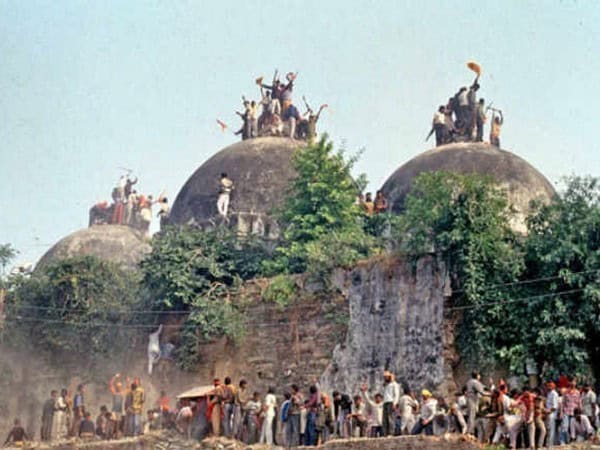New Delhi: The Supreme Court on Monday had said the faith of Hindus with regard to Ayodhya as the birthplace of lord Ram is quite difficult to rebut as few Muslim witnesses have termed the place as sacred to Hindus as Mecca is sacred to them.
A Constitution bench headed by Chief Justice Ranjan Gogoi had pointed out that few Muslim witnesses in their statements in the lower courts have testified that place is sacred to Hindus, NDTV reports.
“Even Muslim witnesses (during the trial) have said that Ayodhya to Hindus is as sacred as Mecca is for them. It will be difficult to rebut the belief of the Hindus,” said the bench comprising of Justices SA Bobde, DY Chandrachud, Ashok Bhushan and SA Nazeer.
Senior Advocate Rajeev Dhavan, appearing for the Sunni Waqf board and other Muslim parties was questioned on whether the divinity and the “exact form” of an idol or a deity were necessary to hold that they have “juristic personality”.
Responding to the question raised by the Judges Mr Dhavan replied that only belief cannot be the basis to claim title and accord juristic status to the ‘janmsthan’ (birth place).
“If Lord Ram and Allah are not respected then this great nation will split apart,” said the lawyer strongly objecting to the move to make the birthplace as a party to the lawsuit filed on behalf of deity ‘Ram Lalla Viarajman’ that is claiming juristic status for the sacred land.
“They just say Lord Ram was born here. None of the contours of the area are mentioned anywhere in the plaint. The suit is thus merely a vehicle to destroy and build a temple,” Mr Dhavan argued.
“The Hindus parties have argued that all existing structures be demolished at Ram Janmabhoomi and a new Temple be constructed there,” he added.
Responding to Mr Dhavan, the bench said: “Your (Rajeev Dhavan’s) first claim is that belief is tenuous as an evidence. But your second argument is that belief should be manifested by way of an object. What exactly is the object you are talking about,” the bench asked. “Is it necessary for a deity or an idol to have divinity so as to make it a juristic personality”.
The bench further questioned the senior lawyer: “Assume that it (land) is the juristic personality and then what will be the consequences. Even assume that it does not have the juristic personality, then what will be the consequences,” adding whether the same logic would apply to public Muslim graveyards.
“The dedication and the long use are the two criteria. A public wakf can be created on these two grounds,” Mr Dhavan said.
But in this present case, the issue is whether only the belief is satisfactory to attach an area and claim its title while saying the mosque was illegal just because it was built on Ram Janmabhoomi.
The senior lawyer asked the bench to lift the veil to see whether the birthplace can be treated as juristic person and reiterated his submissions that Hindus never had the access to the inner courtyard and they were praying at ‘Ram Chabutara’ in outer courtyard.
Mr Dhavan had also opposed the plea of some Hindu parties who said they acquired title over the site on account of legal doctrine of “adverse possession” and that it presupposes the fact that the Muslims were the legal owner and Hindus were having “adverse possession” of the place.
“There was no idol in the inner area till 1949,” Mr Dhavan said, adding, “the mosque was never an abandoned mosque at any point of time. It might have, at best, been unused for some time. That is their (the Hindus’) best case.”
“The entire argument was based on belief from scattered sources such as Travellers accounts and Gazetteers which have been found to be inconsistent and inconclusive,” he claimed.

